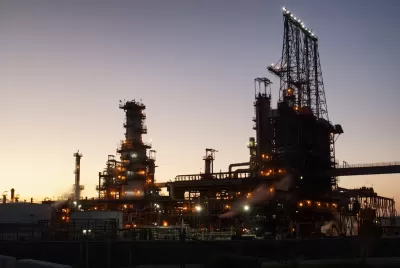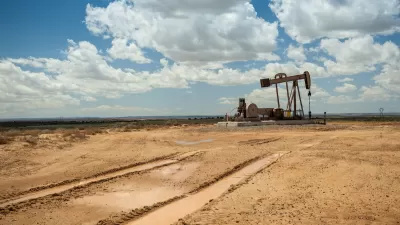The sudden closure of the Phillips 66 refinery in Los Angeles has been welcomed by environmental and community activists, raising hopes for reduced pollution.

The recent announcement that the Phillips 66 refinery in Los Angeles will close next year has been met with relief from environmental activists and local residents. The refinery, located in Carson and Wilmington, has been a source of pollution and health concerns for over a century, with complaints of toxic emissions, flaring, and fires in recent years. According to Julia May from Communities for a Better Environment, the sudden closure, though unexpected, is seen as an opportunity to address the environmental and public health issues that have long plagued the surrounding communities.
As reported by Tony Briscoe, the refinery’s shutdown comes as California’s demand for fossil fuels declines, largely due to the increasing adoption of electric vehicles and the state’s broader efforts to transition away from petroleum products. This trend has raised questions about the future of the site and whether cleaner, more sustainable operations could replace the refinery infrastructure. Meanwhile, community advocates are emphasizing the need for a just transition, ensuring that the 600 workers and 300 contractors affected by the closure are supported in finding new employment in emerging sectors of the economy.
The Phillips 66 facility has been notorious for releasing harmful chemicals, including benzene and sulfur dioxide, which have impacted the health of nearby residents. Among the most concerning incidents were two major fires at the Carson refinery in 2019, which led to citations from the U.S. Environmental Protection Agency. As the closure moves forward, environmental and community activists are hopeful that this marks a significant step toward reducing pollution in the region while promoting environmental justice.
FULL STORY: Phillips 66 refinery closure a welcome surprise to environmental and community activists

Planetizen Federal Action Tracker
A weekly monitor of how Trump’s orders and actions are impacting planners and planning in America.

Restaurant Patios Were a Pandemic Win — Why Were They so Hard to Keep?
Social distancing requirements and changes in travel patterns prompted cities to pilot new uses for street and sidewalk space. Then it got complicated.

Map: Where Senate Republicans Want to Sell Your Public Lands
For public land advocates, the Senate Republicans’ proposal to sell millions of acres of public land in the West is “the biggest fight of their careers.”

Maui's Vacation Rental Debate Turns Ugly
Verbal attacks, misinformation campaigns and fistfights plague a high-stakes debate to convert thousands of vacation rentals into long-term housing.

San Francisco Suspends Traffic Calming Amidst Record Deaths
Citing “a challenging fiscal landscape,” the city will cease the program on the heels of 42 traffic deaths, including 24 pedestrians.

California Homeless Arrests, Citations Spike After Ruling
An investigation reveals that anti-homeless actions increased up to 500% after Grants Pass v. Johnson — even in cities claiming no policy change.
Urban Design for Planners 1: Software Tools
This six-course series explores essential urban design concepts using open source software and equips planners with the tools they need to participate fully in the urban design process.
Planning for Universal Design
Learn the tools for implementing Universal Design in planning regulations.
Heyer Gruel & Associates PA
JM Goldson LLC
Custer County Colorado
City of Camden Redevelopment Agency
City of Astoria
Transportation Research & Education Center (TREC) at Portland State University
Camden Redevelopment Agency
City of Claremont
Municipality of Princeton (NJ)





























